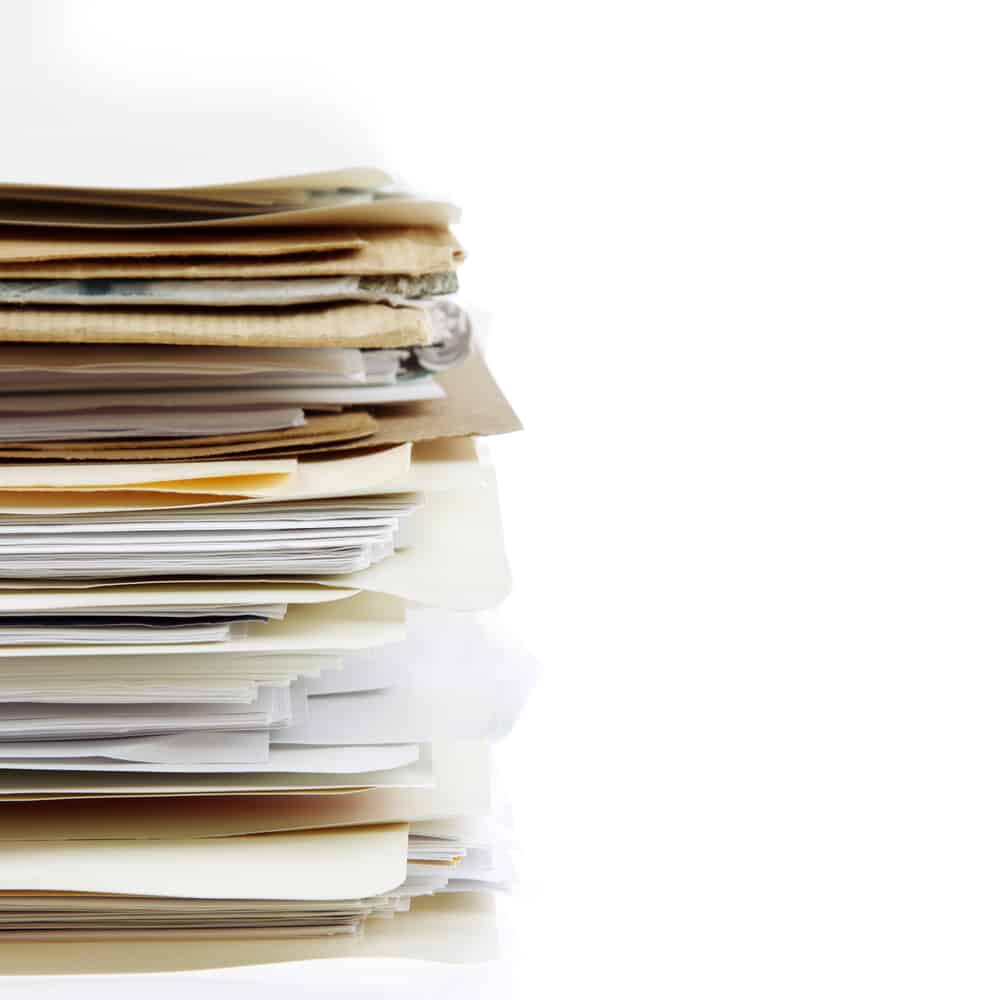Declutter Your UK Paperwork in 7 Simple Steps

Managing paperwork can often feel overwhelming, especially in a country like the United Kingdom with its diverse set of laws, regulations, and financial obligations. Whether you're sorting through personal documents, legal papers, or managing business accounts, having an effective strategy to declutter and organize can save you time, reduce stress, and make important documents readily accessible when you need them. Here's a comprehensive guide on how to declutter your UK paperwork in 7 simple steps.
Step 1: Understand the Categories

Before diving into decluttering, it’s helpful to understand what categories of paperwork you need to keep track of. Here are some common types:
- Personal Documents: Birth certificates, passports, ID cards, health records.
- Financial Documents: Bank statements, tax returns, receipts, and investment records.
- Legal Documents: Wills, property deeds, contracts, and court orders.
- Business Records: If you run a business, keep separate records for invoices, employee details, and business financials.
💡 Note: Understanding the categories helps in organizing and prioritizing what to keep and what to discard.
Step 2: Gather Your Materials

To effectively sort through your paperwork, gather these materials:
- Storage Solutions: Filing cabinets, file folders, binder clips, labels, and shredders.
- Sorter: A document sorter or a simple mail organizer can help in sorting documents.
- Scanner: For digitizing essential papers you might want to keep but not in physical form.
Step 3: Set a Date and Time

Decluttering paperwork isn’t a task for when you have “free time.” It requires dedicated time:
- Plan a day or series of days where you can focus solely on this task.
- Consider a weekend or a day off where you can work without interruptions.
Step 4: Sort and Categorize

Now comes the sorting phase:
- Sort by Category: Begin by sorting all papers into their respective categories.
- Sub-Categorize: Within each category, create subcategories like "to keep indefinitely," "to keep temporarily," "to shred," and "to recycle."
- Use Color Coding: Different colored folders or labels for each category can visually help in quick identification.
| Category | Examples of Documents | Retention Period |
|---|---|---|
| Personal | Birth certificate | Indefinite |
| Financial | Tax Returns | 7 years |
| Legal | Contracts | Until Superseded or Cancelled |
| Business | Invoices | At least 7 years for tax purposes |

Step 5: Secure Important Documents

Secure your documents:
- Safekeeping: Important documents like wills or property deeds should be kept in a fireproof safe or a safety deposit box.
- Backup Digitally: Scan and back up your documents on a secure cloud service or external hard drive.
Step 6: Implement a Filing System

Create an efficient filing system:
- Chronological: Organize documents by date for financial records.
- Alphabetical: For things like client or supplier files.
- Project-Based: Group documents according to different projects or events.
🔒 Note: Choose a filing system that fits your daily workflow to ensure sustainability.
Step 7: Ongoing Maintenance

The final step is setting up a maintenance routine:
- Daily Sorting: Set a daily or weekly time to sort new incoming documents.
- Annual Review: Every year, review documents to see what can be shredded or archived.
- Consistent Organization: Keep up with your filing system regularly to prevent future clutter.
In summary, the process of decluttering your paperwork involves understanding what to keep, how to organize, and the importance of secure document handling. By following these steps, you can not only manage your current documents but also set up a system to handle future paperwork efficiently. Organizing your paperwork in the UK doesn't have to be daunting when approached methodically. Start small, stay consistent, and you'll find the task less overwhelming over time.
What paperwork must I keep indefinitely in the UK?

+
Documents like birth certificates, marriage certificates, and deeds to property are best kept indefinitely due to their long-term legal significance.
How long should I keep tax documents?

+
In the UK, it’s recommended to keep records related to tax for at least 6 years from the end of the tax year they relate to. If you’ve not yet filed your tax return, keep the documents until you can.
Can I shred all documents after digitizing them?

+
No, not all documents can be shredded after scanning. Documents like wills or those that need to be presented in their original form should still be retained in physical form.



